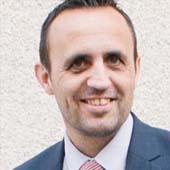Loading...
Some students choose a major simply because they love the subject matter. If you love what you’re studying, you’re more likely to fully engage with your classes and education experience, and that can mean better grades and great relationships with others in your field. However if you haven’t yet got an idea don’t worry, you can choose your major later. Once you’ve had experience of the different subjects.
Our degrees have a modular structure. This means that compulsory ‘core’ modules provide you with general business acumen and skills that you need. ‘Elective’ modules, chosen as part of your major, allow you to shape your course to suit your personal interests and career aspirations.
BBA : 12th or 10+2 /High School Diploma (Europe)/ Equivalent (Any stream)
Marks : 55% and more
English Level : 12th / High School Diploma (Europe)/ Equivalent diploma – English Marks 65% & more
Or IELTS – 6 Bands
Note – In some cases MOI Certificate can be considered instead of IELTS Score Card.
As a business development manager, our programs will make sure you have the skills to manage and develop new growth and business solutions for your future organisation.
Our BA degree in Business development provides you with over 1800 hours of classes, and once successfully completed awards you with 180 ECTS Credits and CBDE Certification.

Through our program we ensure you are able to source both locally and globally, guaranteeing that as a supply chain manager you have all the skills to be responsible for the supply, purchase and delivery of goods.
Learn to manage your risk/return trade-offs to support you with better decision-making around financing and capital efficiency. From portfolio review and capital allocation processes to financial planning analytics and strategic decision making, we will provide you with the analytics approach and tools to help your future organisation better allocate capital.
Our BA degree in International Corporate Finance provides you with over 1800 hours of classes, and once successfully completed awards you with 180 ECTS Credits.

Project Management helps you maximise the business results from projects. With a goal on improving the management and delivery of projects, this program helps you to work on portfolios in both traditional and 'agile' ways, including the original parameters of time, cost and quality. Through a combination of practical exercises and cases studies, participants will learn about the most important project management tools and techniques.

Digital marketing is an exciting and ever-changing field that keeps people on their toes, full of new technologies, strategies, and markets to explore.
In digital marketing, you’re always working with a variety of people, on many interesting and exciting new projects, for a range of different clients. Your role includes devising new strategies to stay ahead of the competition, so it’s nearly impossible to get bored when you’re working.
Our BA degree in Digital Marketing provides you with over 1800 hours of classes, and once successfully completed awards you with 180 ECTS Credits.

HR best appeals to people who enjoy communication and teaching. Lean how to use your talents to work on the long-term health of the business. When HR steps out of its traditions and embraces a major role in an organisation great things happen. Learn how to use talent to drive value rather than just responding to the routine needs of businesses. Be at the centre of a transformation as corporate leaders seek to put into practice and place their biggest asset; people at the centre of what they do.


With over 15 years of experience as a Finance and Management Controller, Johann has worked for Number of major International Corporations, he joined us at the Academy with a desire to face a new challenge and transmit his reliability and results orientated approach in helping students to learn essential finance and performance measurement management tools.
Introducing students to the key conceptual knowledge of entrepreneurial and small business principles and their practical implementation. It focuses on the key development stages related to the entrepreneurial process, including business model innovation, monetisation, small business management as well as strategies that improve performance of new business ventures.
Our BA degree in Entrepreneurship provides you with over 1800 hours of classes, and once successfully completed awards you with 180 ECTS Credits


After 10 years in Banking and Finance I brought a new momentum in my life journey by taking a 3-year respite in order to live a unique entrepreneurial experience in Africa
Thus it was without any specific training, experience, or preconceived ideas other than a happy ingenuity making everything possible, that I could experience entrepreneurship.
Management and business strategy can be applied in large- and medium-sized companies across sectors and in a variety of domains : human resources, marketing, B to B and international environment analysis.
Graduates of the European Master’s in Management and Business Strategy can also access strategic managerial posts within SMEs. During the programme, emphasis is placed on management and human resources, as well as on business strategy, allowing students either to specialise in a single domain or to develop more general skills applicable to a range of posts.
At the end of the two-years course students apply and consolidate the skills they have acquierd by analysing a business environment and issuing recommendations.
CAREER DESTINATIONS